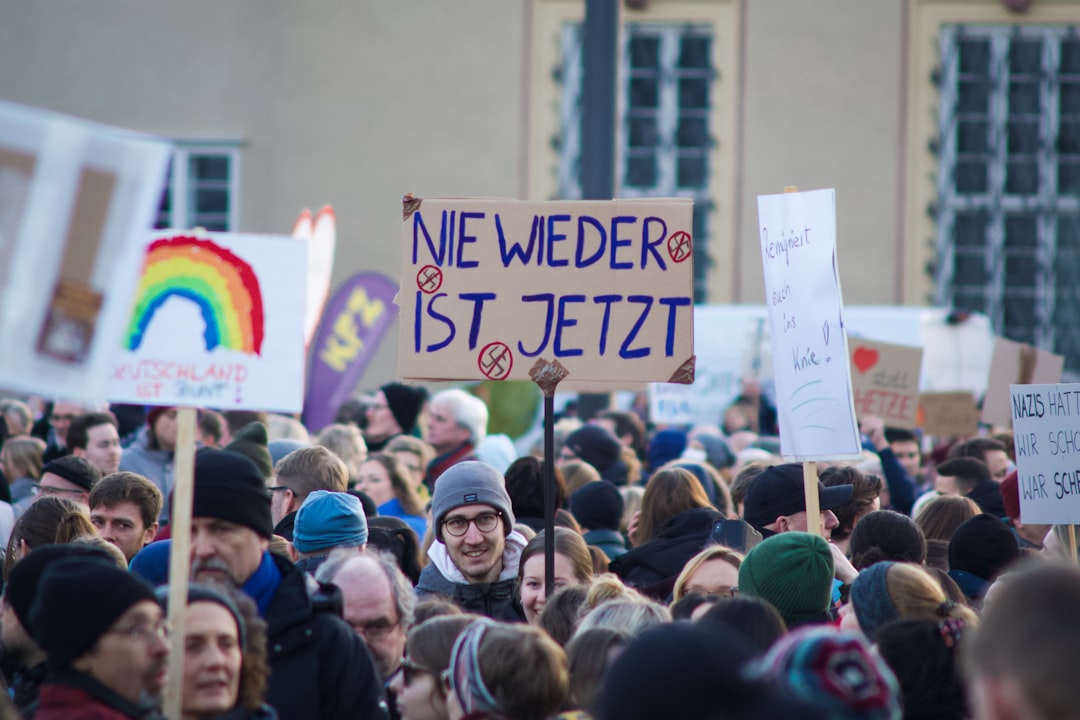What will the anti-AfD protests achieve?

Dear Reader,
Over the past fortnight German has witnessed some of the largest protests in living memory. While the exact numbers are disputed, we are talking about a million or maybe more people who have taken to the streets to march against the AfD.
Protesters carried signs that read “EkelhAfD” (a play on the word ekelhaft, meaning disgusting) or “nie wieder ist jetzt” - never again is now - a reference to the Nazi era.
The protests were sparked by a report by the investigative website Correctiv on a “secret meeting” between AfD figures and the leader of the extremist Identitarian Movement, who wants an ethnically “pure” Europe.
Seen in a wider context, the scale and intensity of the demonstrations reflect how profoundly German politics has been reshaped by the rise of the AfD, turning what was once a marginal concern into a defining national fault line.
It is the first time that the German public has taken to the streets in such large numbers to protest against the far-Right party, even though it has long been known that some inside the AfD have links to Germany’s neo-Nazi scene.
Responses to the protests in the media have generally been positive.
The left-leaning Der Spiegel commented that the size of the protests “disproves the great lie on the (far) Right that they represent the majority. But they are not ‘das Volk’. On the contrary, the people don’t want to have anything to do with them.”
On the opinion pages of the conservative Die Welt, the protests were welcomed, but with the caveat that it is “ignorant of history” and “hysterical” to draw comparisons to the Nazi era.
Most pressing is the question of what the protests mean for the future of German politics.
Unusually, these protests weren’t directed against the government. Thus, they can’t lead to a change in any specific policy, nor were the protesters demanding such a thing. Nonetheless, they still contained an unmistakable message to the political establishment: never work with the AfD!
In other words, they reinforce the famed brandmauer - the firewall that all the other parties currently represented in the Bundestag have vowed to maintain against the AfD.
Unlike in other EU countries where the old parties have long since decided to work with the populist right, the German establishment has made all cooperation with the AfD strictly verboten. This firewall is so rigid that parties aren’t just forbidden from forming a coalition with the AfD at any level of government - it excludes relying on AfD votes in any setting at all.
The current marches are (largely) an attempt to be as “big tent” as possible, incorporating protesters of all political stripes. Thus, their message isn’t just directed at Olaf Scholz’ and his centre-left government, but at the Christian Democrats, the conservative opposition, too.
Indeed, politicians from all the major parties have turned up at the rallies in a signal of solidarity.
At the same time, the protests are happening in the context of a whole new political landscape currently taking shape. Two new parties have already been set up this year that are seeking to disrupt the old system. Neither sees itself as bound to the logic of the firewall.
In this context, we shouldn’t forget that a million protesters - (or even two million, as the organisers claim) - can’t possibly tell us what the majority in a country of 60 million voters thinks.
Arguably, the architecture of the firewall is changing. The protests make the structure of the wall stronger and higher. But they also force the old parties ever closer together inside it.
While the brandmauer was once conceived of a sort of Great Wall of China - a single, straight structure that keeps the barbarians out - it is now becoming the wall of fortress in which the old parties are trapped together as they come under siege from various directions.
Whatever the impression that the current protests may give, it is far from clear how many Germans have decided to retreat inside these walls with them.
For those voters on the inside, the overriding question after every state or federal election is increasingly: are you on the side of democracy or not? That will lead to weak coalitions between the established parties that become ever less ambitious - or ever less capable of acting on their ambitions.
In turn, this will lead ever more people to question whether it still makes sense to stay inside the wall.
Upcoming elections in Saxony and Thuringia provide a good example of this.
Even after the Correctiv report, the AfD remain well ahead of the pack in polling in the eastern states, which hold elections in September. In Saxony they are on 35 percent, in Thuringia they are on 31 percent.
In Saxony, the Greens and Social Democrats will struggle to scrape together a few seats between them. In fact, according to the latest polling they are both on 7%, just above the 5% trapdoor below which you drop out of the state parliament altogether.
Keep reading with a 7-day free trial
Subscribe to The German Review to keep reading this post and get 7 days of free access to the full post archives.


